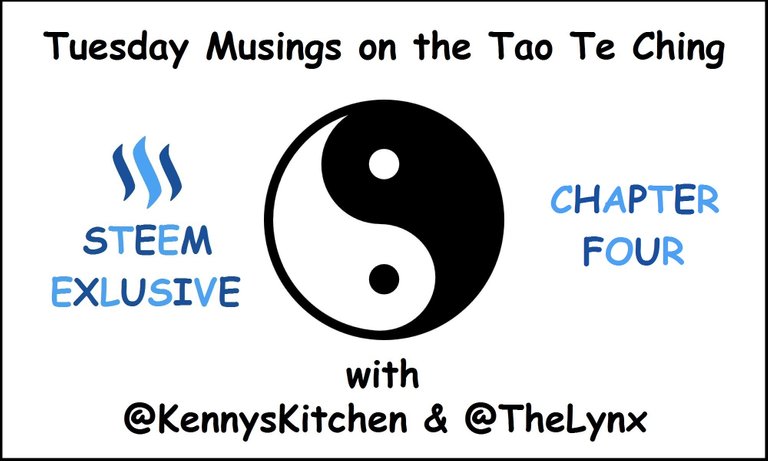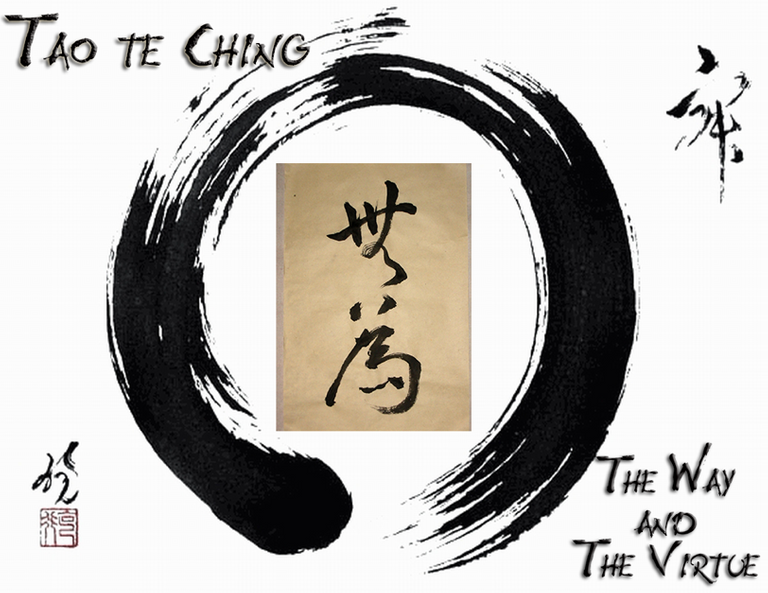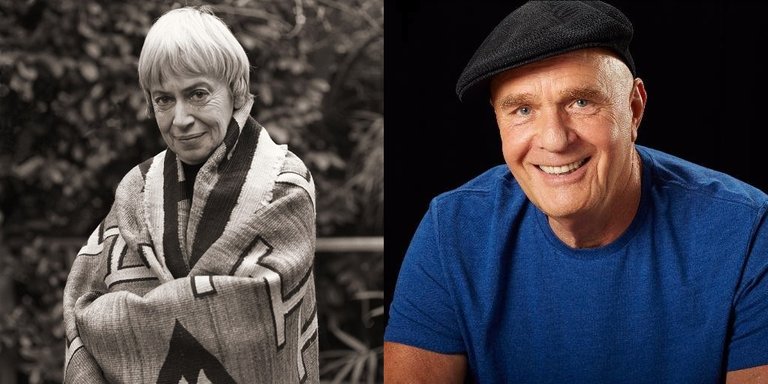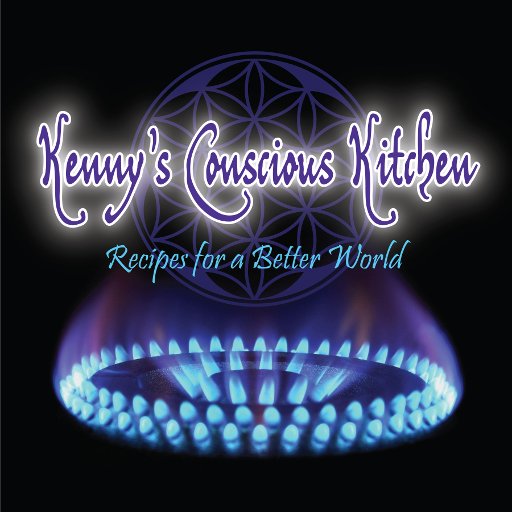
Welcome to the fourth installment of Tuesday Musings on the Tao Te Ching, with a weekly series where my partner @TheLynx & I will be taking a look at the Tao Te Ching (pronounced "Dao/Dow De/Day Jing"), one chapter at a time.
The Tao Te Ching was written by Laozi/Lao Tzu at least 2400 years ago. Although there are certainly a wide variety of texts and teachers that have come together to form the basis of modern Taoism, the original Tao Te Ching is central. It's been translated hundreds of times, and it is certainly one of the most influential spiritual texts of modern humanity.
To be perfectly clear, neither of us is an "expert" on the Tao, or even consider ourselves Taoist, and we are not trying to come across as any sort of authority figures. Just two humans meditating on the text and sharing what comes up for us, hopefully starting a conversation with you folks!
The most difficult part of setting this up is picking which translation of the Tao Te Ching to use, since obviously it wasn't written in English, and we can't read classical (or any other version) of Chinese. We've finally settled on using just 9 different translations for each chapter. 7 of them (and the original Chinese) will be included as a screenshot (from 2 sites that each offer a variety), while the other two will be included as quotes in the text body of the posts.
- YellowBridge - Original Chinese & 3 translations:
- TranslationComparison - 4 translations:
- DC Lau (1964)
- Ursula K. Le Guin (1997)
Previous Chapters

Chapter 4
The way is empty, yet use will not drain it.
Deep, it is like the ancestor of the myriad creatures.Blunt the sharpness;
Untangle the knots;
Soften the glare;
Let your wheels move only along old ruts.Darkly visible, it only seems as if it were there.
I know not whose son it is.
It images the forefather of God.
The way is empty,
used, but not used up.
Deep, yes! ancestral
to the ten thousand things.Blunting edge,
loosing bond,
dimming light,
the way is the dust of the way.Quiet,
yes, and likely to endure.
Whose child? born
before the gods.


My Thoughts/Reflections/Insights
I've got to say, I was really excited to dive into chapter 3, it seeming like the most straightforward and real-world applicable so far, and have a bit of confusion looking at this new one. Once again we're primarily in the world of paradoxes and the nature of the Tao itself now... which isn't a problem but does make things quite interesting. As with the previous more "mystical" chapters, the translations vary quite a bit this time around.
The first line, to me, reads something like "the emptiness of the universe contains all that ever was, is, or will be". Whether it be an empty vessel, a well, or Hogan's simple "more than you'll ever need", this appears to be pointing to the absolute abundance that is the nature of our Universe. Everything comes from the no-thing, all of reality is held within the emptiness of space.
The next section seems to me as a reminder to the constant state of change, of death & rebirth, of all things that are becoming "not" that is the other side of that same equation. Just as all things come from nothing, so too do they return. I feel like Le Guin's translation captures it best: "the way is the dust of the way."
Finally, we come to the closing, which I read as something like "The Tao is more than can be seen or understood, it is in everything, and thus it is nothing that we can identify or label... It is older than any beings or concept of beings, it is that which gave rise to BE-ing."
This whole chapter reminds me of a quote from Coehlo's The Alchemist: “All things are manifestations of one thing only.”
Honestly I think I like Hogan's translation best overall this time around, because his simple, layman's speech seems perfectly fitted to this particular chapter.
Thoughts/Reflections/Insights from @TheLynx
I appreciate Ursula K. Leguin's commentary, "all the stuff that Lao Tzu says leads us away from the Way." The nature of the Way is such that it becomes more elusive the more we try to put a finer point on it. I find it curious, then, that Susuki translates "the Way" as "Reason", because what is reason if not an attempt to put a finer point on things? Seems to me that a closer translation might be Intuition, that notoriously nebulous and unfathomable way of knowing.
This whole chapter resonates with feminine energy for me, in fact. I don't mean to get in any trouble for implying that the feminine is not also fierce, or that the masculine has no access to its intuitive power. But words and phrases like "vessel", "still", "tranquil", and "hidden but ever present" seem to tap into the feminine side of things. Not to mention the whole part about being the originator of the universe. Blunting edges, loosing bonds, unraveling complications, softening the glare, proceeding everything. The stillness and tranquility of the womb.
Stefan Stenudd notes that the nature of Tao can be found in the minuteness of things, rather than in the grandness, the obviousness:
"Mountains, planets, galaxies, they all consist of atoms, which do in turn consist of particles so minute that their existence may never be confirmed. Since everything in the world consists of things small, the minute is closer to the nature of Tao. And since most things in the world go by unnoticed, the hidden is also closer to the nature of Tao.
Because Lao Tzu sees the Way as the reason behind all, he concludes that it must have the most to do with the things that we regard as lesser. The big events are rare, while everyday proceedings take place constantly. The bigger the size of things, the fewer they are. So, the Way deals mainly with the small.
We should ponder this, so that we remember to pay the most attention to the things that seem to be the least significant."
It's hard not to think of the endless emotional labor task list -- the connective and largely unseen work of preserving and building social relationships -- when I read the words "the things we regard as lesser", the "everyday proceedings [that] take place constantly".
This might be a leap, but it is where my thoughts go today: in her book Emergent Strategy, adrienne maree brown speaks of the inner transformation of The Ruckus Society, a non-violent activist organization, from having a "penetrative" masculine action culture to a feminist culture:
"Rather than forming long-term partnerships with communities, Ruckus was in and out with mind-blowing, creative actions. This was in line with a model of action grounded in spectacle. The politics were radical and the actions historic, but there wasn't a sense of community ownership or engagement in the work--which meant that at a fundamental level the power dynamic wasn't changing. The communities still come to rely on someone else to change their situations."
Over years of work, Ruckus shifted to a model which prioritized "deep, authentic collaboration", the kind of approach that wields its power not through showy grand gestures and reactionary movement but through the slower, steadier work of trust building, connectivity, unification, and systemic transformation.
I feel this resonance with and appreciation for the small, the mysterious, the connected, and the ineffable in this chapter.

Thoughts/Reflections/Insights from Ursula K. Le Guin
After @TheLynx & I each sit with the chapter of the week and write our own reflections & insights, I'm going to include here the comments that Ursula added to her translation of the Tao. If you aren't familiar with Le Guin, I highly recommend reading any & all of her content that you can find :-) She's a wise, inspirational, curious, and delightful author of science fiction, fantasy, poetry, and much more!
Everything Lao Tzu says is elusive. The temptation is to grasp at something tangible in the endlessly deceptive simplicity of the words. Even some of his finest scholarly translators focus on positive ethical or political values in the text, as if those were what’s important in it. And of course the religion called Taoism is full of gods, saints, miracles, prayers, rules, methods for securing riches, power, longevity, and so forth—all the stuff that Lao Tzu says leads us away from the Way.
In passages such as this one, I think it is the profound modesty of the language that offers what so many people for so many centuries have found in this book: a pure apprehension of the mystery of which we are part.
Affirmation by Dr. Wayne Dyer
The final piece of our piece on each chapter of the Tao is an affirmation, written by Dr. Wayne Dyer, and featured in his book: Living the Wisdom of the Tao. Dyer was one of the foremost names in self-development, having published well over 30 books, as well as guided meditations, and many more useful tools for transformation.
The all-providing
Tao is empty,
yet inexhaustible.

Join the conversation!
Here's the part where we hear from you! If you have anything that you want to add to the conversation, please hop down to the comments section. By reflecting & synthesizing together, we can all help move forward human consciousness, and that is a pretty fun thing!
Image Sources
YellowBridge Translations
TTC Translations
Le Guin
Dyer
Conversation

If you enjoyed this, you may enjoy some of these highlights of my blog:



Congratulations! This post has been upvoted from the communal account, @minnowsupport, by kennyskitchen from the Minnow Support Project. It's a witness project run by aggroed, ausbitbank, teamsteem, someguy123, neoxian, followbtcnews, and netuoso. The goal is to help Steemit grow by supporting Minnows. Please find us at the Peace, Abundance, and Liberty Network (PALnet) Discord Channel. It's a completely public and open space to all members of the Steemit community who voluntarily choose to be there.
If you would like to delegate to the Minnow Support Project you can do so by clicking on the following links: 50SP, 100SP, 250SP, 500SP, 1000SP, 5000SP.
Be sure to leave at least 50SP undelegated on your account.
Hi @kennyskitchen!
Your post was upvoted by @steem-ua, new Steem dApp, using UserAuthority for algorithmic post curation!
Your UA account score is currently 6.305 which ranks you at #196 across all Steem accounts.
Your rank has dropped 1 places in the last three days (old rank 195).
In our last Algorithmic Curation Round, consisting of 304 contributions, your post is ranked at #216.
Evaluation of your UA score:
Feel free to join our @steem-ua Discord server
This will sound weird (ha!) but this one makes me think about a comment Elon Musk made on Rogan: that the underlying template of the Matrix is boring...And that may be the precise reason we continue to play the game here. I, too, have speculated on that a few times on my blog.
Where my dream about the 33rd-degree latitude and the Grand Old Mansion had to do with our recurring experiences here. A consciousness playground I think was how I phrased it.
I'm enjoying this series:)
Ya, that was a very interesting point, the idea that each level deeper into the simulation would necessarily be more exciting/entertaining than the previous one.
I tackled that idea a bit in my Real Life: The RPG series, but have the opposite stance. Every simulation we have or will come up with from this level of reality is by definition contained within this one, mean the deeper we go, the less and less complexity & variety there can possibly be.
Thanks! I've been quite enjoying this so far as well :-)